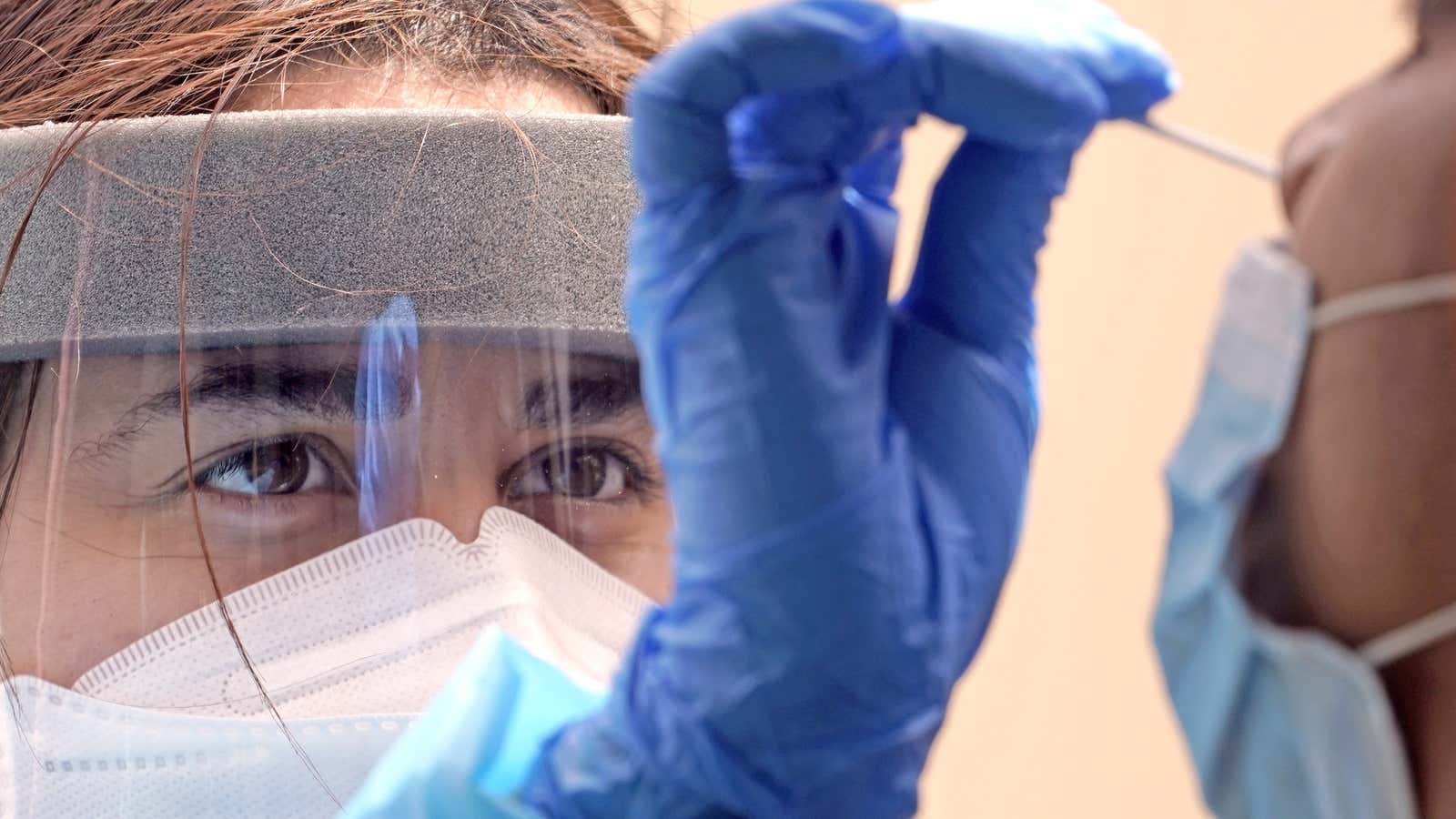The past few months have taught us once again that the greatest tragedies in the world do not affect everyone equally. The Covid-19 pandemic and resulting economic collapse have had a disproportionate impact on the vulnerable amongst us.
There are three groups of people at risk of suffering most severely right now:
- Those who are susceptible to adverse Covid-19 health outcomes, such as people over 65 and people with chronic health issues (about 30% of the US population);
- Those who are at risk of being exposed to the virus, such as people in high-contact jobs or who live in dense neighborhoods or crowded living quarters. In the US, this includes people of color, who are infected at 1.5 to 2 times the national rate—a result of exposure risk and testing access, not underlying conditions;
- Those experiencing economic hardship. Almost 90% of US workers who are below 150% of the Federal Poverty Line work in high-contact jobs—the jobs most at-risk during the pandemic.
What’s worse, there’s a significant overlap among these groups.
To achieve health protection and economic recovery, we must focus on protecting the most vulnerable
My colleagues at Boston Consulting Group and I have analyzed global data to understand the disproportionate impact on these populations, and the resulting effect on society at large. The results are striking. For example, people with the highest medical risk are 60 times more likely to be hospitalized as a result of Covid-19 than adults who are mostly healthy and under the age of 50.
Our most vulnerable cannot wait. We need to move beyond solutions that are based on across-the-board tradeoffs between economics and epidemiology. Instead, we need to work together—government, private sector, and not-for-profits—to find “epinomic” solutions, addressing both our economic and epidemiological needs, to protect the lives and livelihood of the vulnerable and thus of us all.
What would “epinomic” solutions look like?
Ideally people in the highest-risk groups would be able to stay home, through expanded disability benefits, alternative work arrangements, telemedicine, and expanded services.
Protective equipment continues to improve based on experience and innovation. Right now, we know that masks made of tightly woven cotton layered against two sheets of chiffon are more effective than other cloth masks. These, and other PPE, would be distributed at low or no cost to vulnerable populations and replaced with improved products as they emerge.
Currently, testing capacity impedes our ability to get ahead of this virus. We can skew testing to vulnerable people and communities of color, as well as expediting pooled testing.
Restaurants, retail stores, mass transit, and other places where people gather closely together might still carefully open, but contact with vulnerable groups should be limited. Commuter train congestion might be reduced systematically with staggered work schedules. Stimulus payments and unemployment benefits could also be channeled toward people at risk.
A new type of leadership
An epinomic paradigm represents a welcome alternative to the stagnation of lockdown, the fear of unbridled contagion, and the despair of uncertainty. Instead of oscillating between extremes, we would proactively shape our future.
We are working with various corporate clients, and state and local governments to implement solutions that specifically address vulnerable populations, such as tailored testing strategies for long-term care facilities and PPE, and food delivery programs for the elderly.
To be sure, a strategy of protecting the vulnerable first would mean learning something new: working together, across many organizational boundaries. It would require humility and an openness to learn and act quickly on the part of leaders everywhere. But the time is right, and the need is urgent.
Rich Lesser is the CEO of Boston Consulting Group (BCG). Since joining the firm in 1988, his client work has focused on strategy, operations, leadership, and large-scale transformation.
